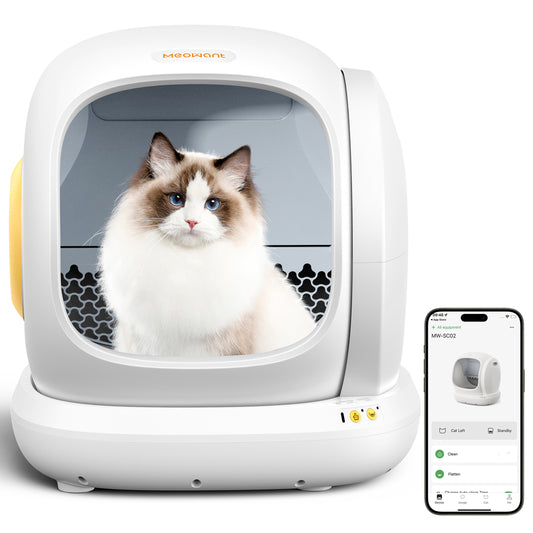Unlock the Secret to Your Senior Cat's Comfort with the Perfect Litter Box!
As our feline companions age, their comfort and well-being become paramount. Senior cats often face unique challenges that can make everyday tasks, such as using the litter box, more difficult. Traditional litter boxes may not cater to their changing physical needs, leading to stress and potential accidents. A suitable litter box can significantly enhance your senior cat's quality of life, making it easier for them to maintain their hygiene and comfort. In this article, we will explore the essentials of selecting the perfect litter box for your senior cat, ensuring their needs are met as they gracefully age.

Understanding the Needs of Senior Cats
As cats age, they undergo various physical and behavioral transformations. Many senior cats experience decreased mobility, joint pain, and other health issues that can affect their ability to jump into standard litter boxes. These changes may lead to modifications in their litter box habits, such as avoiding the box altogether or having accidents outside of it. For instance, a friend of mine noticed that her once agile cat began hesitating before using the litter box, prompting her to evaluate whether the box was too high or cramped for him. By recognizing these signs and adapting accordingly, cat owners can help their furry friends manage their needs better. A litter box designed specifically for senior cats can make all the difference, ensuring they feel secure and comfortable during this essential part of their day.
Key Features to Look for in a Senior Cat Litter Box
When searching for the ideal litter box for a senior cat, several critical features should be prioritized. Firstly, a litter box with low sides can facilitate easier access, especially for cats with mobility issues or arthritis. A spacious design is also vital; it allows the cat to turn around comfortably without feeling cramped. Stability is another essential factor; a wobbly or lightweight box can create anxiety for a senior cat, making them reluctant to use it. Additionally, hygiene cannot be overlooked; an easy-to-clean litter box will ensure that your cat's bathroom remains a pleasant environment. Regular cleaning can also help maintain your cat's health by preventing the buildup of bacteria that can exacerbate existing health issues.
Types of Litter Boxes
There are various types of litter boxes available, each with its advantages and disadvantages. Open litter boxes are generally easier for senior cats to access and offer good ventilation. However, they may not provide the privacy some cats prefer. Covered boxes can help contain odors and litter but might be challenging for an older cat to enter. Self-cleaning litter boxes are convenient for busy owners, but they can sometimes be intimidating for cats unfamiliar with automated systems. Specialized senior cat boxes, designed with lower entrances and wider interiors, can provide the best of both worlds. Assessing your cat's personality and preferences can help you determine which type of box will suit them best.
Choosing the Right Location for the Litter Box
The placement of the litter box plays a significant role in how comfortable your senior cat feels using it. It is essential to choose a quiet and accessible location away from loud noises or high-traffic areas. A corner of a room that offers some privacy can create a stress-free environment, allowing your cat to use the box without feeling rushed or exposed. Additionally, consider having multiple litter boxes around the house to give your cat options, especially if they have mobility challenges. This can reduce the chances of accidents, ensuring your beloved feline feels secure in their space.
Transitioning Your Senior Cat to a New Litter Box
Introducing a new litter box to your senior cat requires patience and understanding. Start by placing the new box alongside the old one, allowing your cat to explore it at their own pace. Gradually remove the old box once your cat is comfortable using the new one. Positive reinforcement can encourage your cat to use the new box; treats or gentle praise can create a positive association with the new setup. Remember, each cat is unique, and some may take longer than others to adjust to changes in their environment. Observing your cat’s behavior during this transition can help you tailor your approach to meet their individual needs.
Enhancing Your Senior Cat's Quality of Life
Choosing the right litter box for your senior cat is vital to enhancing their comfort and quality of life. By understanding their unique needs and selecting a box that accommodates those changes, you can help ensure that your feline friend feels secure and content. Remember to consider essential features such as accessibility, hygiene, and location when making your selection. Observing your cat and adapting to their preferences will go a long way in making their litter box experience positive and stress-free. Your senior cat deserves the best, and with the right litter box, you can provide them with the comfort they need during their golden years.








